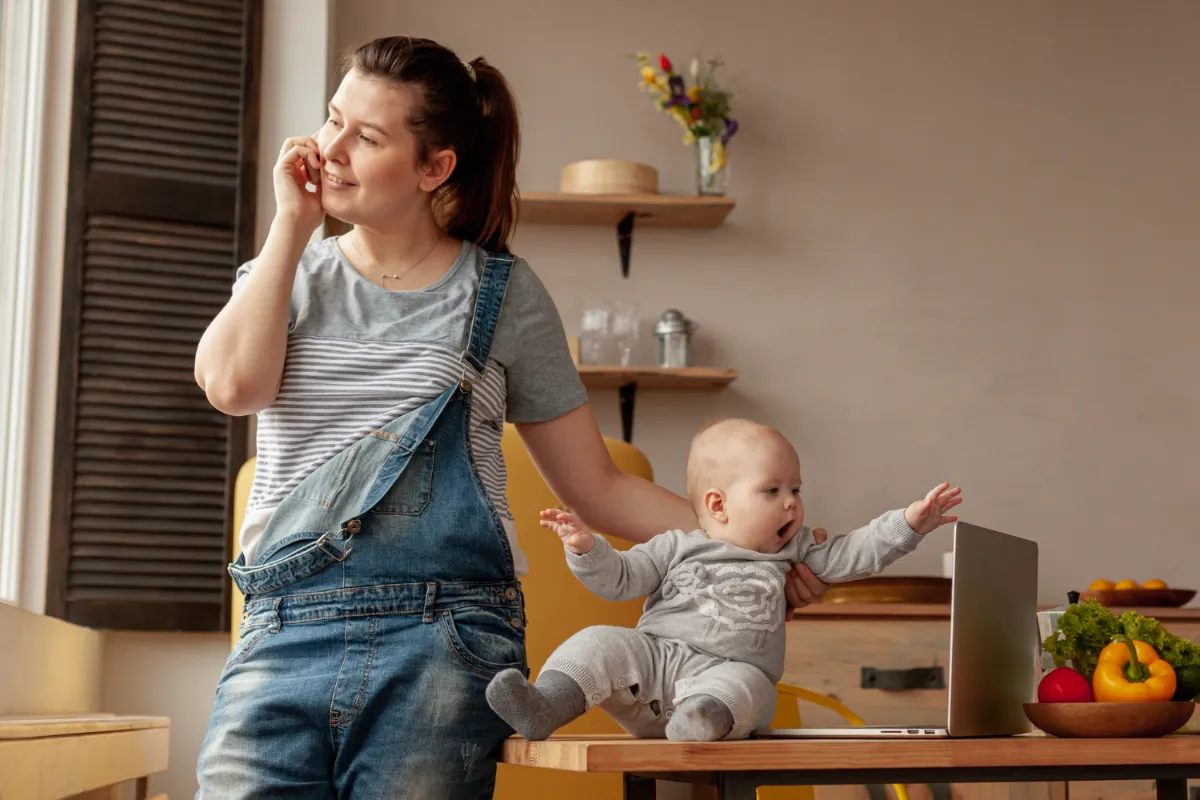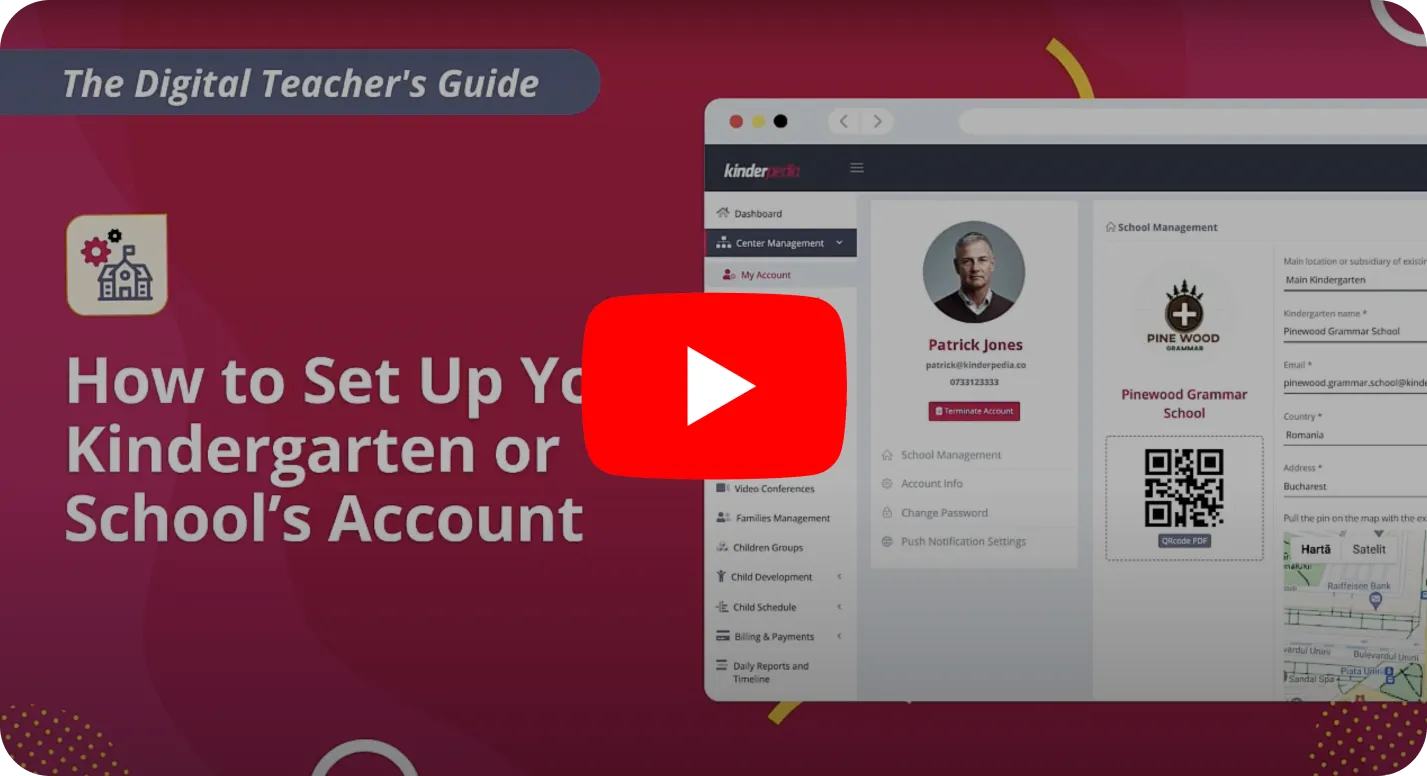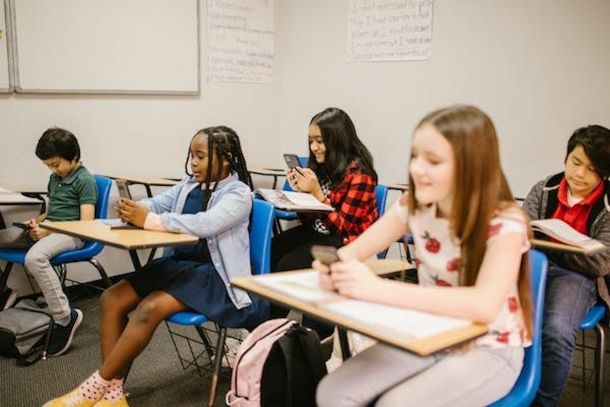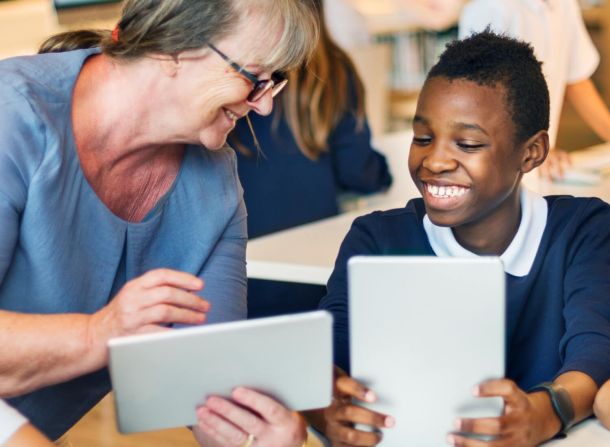Children's autonomy is not something that happens overnight, and it requires a mix of patience, attention, and support in the process on our part, for the little ones. After birth and up to a fairly advanced age, children, unlike other beings, remain close to their parents and the small community they are part of.
However, at around 7 months of age, babies will realise that they are a different entity from their parents. This marks a new cognitive stage and activates the need for autonomy, which will manifest itself in a desire to do things on their own, for example to put their hand on a spoon and eat without help.
According to psychologists Edward Deci and Richard Ryan, authors of self-determination theory, the need for autonomy is one of the three fundamental needs of children, along with the need for connectedness and competence.
To strengthen the theory, the two psychologists and researchers at the University of Rochester focused on discovering what we might call high-quality motivation when people can fully engage in something and have both the best experience and the best performance. In addition to defining motivation and framing it as intrinsic and extrinsic, they also looked at what factors facilitate or undermine this motivation and, as part of their research, they concluded that there are certain basic psychological needs that everyone has, whether they are in the classroom, at work or on the sports field, that help them develop and have the best motivation. These basic psychological needs are autonomy, competence, and relatedness.
In their research, Richard Ryan states that "people who feel more autonomous make better decisions". Supporting children's autonomy also makes for better parenting and a better classroom environment, "i.e. understanding children's perspectives and appreciating and respecting them," he said. When children become more autonomous, they are more likely to train new skills, to try different things and to be more flexible, and all of this fosters harmonious development. As we provide support, opportunities for exploration, encourage curiosity and ensure our little ones are engaged in a variety of rich experiences, their level of independence, as well as their capabilities, will increase.
Children build physical independence as they are able to stand, walk and run. They also become more emotionally autonomous and realise that there are both similarities and many differences between them and their parents, other relatives or friends.
Opportunities to develop autonomy are extremely important for forming the child's identity and building positive self-esteem, training tolerance for possible failures and practising perseverance.
Edward Deci and Richard Ryan define the need for autonomy as the need to experience a sense of choice and volition over one's own behaviour. Students will feel that they are initiating their own actions and will act in ways that are consistent with their interests and values. The need for autonomy is thus intertwined with the 'self', which is the active centre of integration, initiation and spontaneous engagement in the social context.

The role of parents and teachers in shaping children's autonomy
Parents are the main agents of socialisation in their child's life and therefore a significant influence on their child's autonomy and fulfillment of psychological needs. In this area of research, parental support for autonomy has been associated with many direct and indirect positive outcomes: perseverance, school performance, decision-making ability, and flexibility.
Although it would be easy for us to believe that as children get older they no longer need supportive actions, from parents or adults, to become autonomous, research shows that it is essential that all autonomy-supportive behaviours always take place, especially during periods involving high levels of stress (e.g. moving on to high school, high-stakes exams, etc.).
Teachers are the main adults who interact with children at school and exert a significant influence on the formation of their autonomy. Regardless of children's educational background or problems, teachers who adopt a teaching style that supports autonomy directly help pupils to perform better and achieve more.
If we want our young children to become increasingly autonomous, specialists encourage us to follow a number of aspects to build, step by step, children's autonomy:
1. If children can on their own, it is essential to supervise them, but not to do things for them!
It can certainly take longer for socks to be packed and put in the drawer or shoes to be tied correctly when children do it on their own! However, while it's tempting to help them, especially when we know we'd quickly solve the tasks and save a few good minutes, it's important to allow time and space for learning. If the task becomes too difficult and the little ones get upset that they can't do it, experts urge us, before taking over, to ask them if they need help or to guide and encourage them with small cues.
2. Daily routine, an essential element in children's development
It may seem surprising, but establishing a consistent routine is important for cultivating independence. When children know the activities that follow and are repetitive, they are better prepared to take responsibility when they happen. Brushing teeth is a routine, and the more your child learns what the order of steps is and what a correct brushing looks like, the less they will need assistance. Similarly, going out involves choosing clothes, preparing the water bottle, perhaps packing a snack, wet wipes, and tying shoelaces. If we make going to the park a consistent routine, children will gradually take over some of the initiatives.
As children experiment with these routines, they learn to anticipate what's next and begin to take on more responsibility with less help. If we give children the opportunity to put toothpaste on their toothbrushes or pick out their own clothes, they will increasingly take over more and more of these steps on their own.
3. Children who can solve problems have a growth mindset
Before they know the mysteries of maths, children will get it wrong not once, but several times in different exercises, but gradually, gradually, they will improve and succeed on their own. It is essential that young children look at the world and try to solve its challenges, even if their first attempts may not necessarily be the happiest. Children's autonomy is formed by helping the little ones, and in tasks where they are already practised we should not intervene but wait until our help is required.
P.S Even when we do help them, it would be better to give them only small hints first to help them move on to the next step of the activity.
By presenting the child with tasks that are a little more difficult, but still within the realm of what they can do with a little support, we are able to help them learn to cope with frustration, solve problems and resist difficult situations.

4. The effort should be appreciated
If a child understands early on that there is value in focusing on the effort they put in, the process and what lessons they can take from it, they will indirectly learn to embrace mistakes and frame them as part of learning.
Children who are not afraid of failure will be more open to trying new activities!
To cultivate children's autonomy, they need to be encouraged to try new things, to go beyond their comfort zone, to be creative without pressure to succeed and to broaden their horizons.
5. If we support children's projects, we encourage their confidence in their own strengths
Projects of any kind, from colouring, to building, puzzles or crafts, give children the opportunity to focus their attention on a single activity for a limited time. By commenting positively and complimenting the child's work, we give them a sense of achievement and self-esteem, and praising effort helps develop courage. When we encourage our children to model a plasticine figurine, we also automatically communicate that we are confident in their ability to do something creative, give them courage, and help them find the necessary perseverance.
Children speak the language of technology. They use it from an early age and consume its content with interest, in the most diverse and dynamic forms. Bringing such interactive tools to support education is natural when targeting digital natives. Through modern educational platforms, students can organise their tasks and manage their time efficiently, without depending on teachers to get information and check progress. Digital tools not only help students develop their organisational and planning skills, but also give them an opportunity to build their self-confidence.
With a simple and intuitive interface, Kinderpedia allows students to take control of tasks and deadlines. They have the day's timetable, homework and class projects, communication with their teacher and peers, and access to educational resources at a click away. In addition, through Kinderpedia, teachers can provide quick and personalised feedback to students, which can help improve their academic performance.
In conclusion, by using technology, students can take control of their own learning process, develop useful life skills and achieve better academic performance.
7. Free play: a major factor influencing children's autonomy
Independent and unstructured play is very important for stimulating creativity, problem solving and autonomy. However, most pre-school children will need some parental involvement during unstructured play. Even if we provide them with the most interesting materials, the greatest joy for young children is still that we, as adults, play with them, not interfere with their play, but give them the space to show unlimited imagination and decide for themselves what they like and don't like. We can encourage children's autonomy by asking questions to extend their play and to observe how they approach situations.
8. Choices, choices, choices
Experts mention in the literature that to promote children's autonomy, they must be given options from which to choose. We can ask young children what fruit they want for snack or whether they want an evening of board games or cartoons.
Allowing children to make simple choices gives them a sense of control and ownership over their lives, which leads to autonomous thinking. It also helps them to take ownership of these choices and feel responsible for them at a very basic level.

9. START fun and adventure camp
Going to camp can be a challenging activity for many children. However, through guided discussion, choice words, and support, they can go on one of the best experiences and put another brick in the foundation of their self-sufficiency on their own.
10. Patience and well-being!
Children learn best through experience and practice, so find what works for them. Some children may need a more structured approach (for example, learning a new skill each month in a fun and engaging way), while for others it may be enough just to be encouraged to explore freely. It's important not to forget to enjoy being with our little ones, to smile, dance and watch our children become more independent every day.
Autonomy is one of the basic emotional needs all children have. When we support young children to make decisions on their own or to carry out different activities, we help them to develop harmoniously and to form a flexible mindset that will help them throughout their lives.
How Kinderpedia supports active learning and the transition to a modern classroom
Kinderpedia supports active learning by making it easy for teachers to provide students with a variety of interactive and engaging resources that encourage them to take an active role in their own learning. Also, it keeps parents connected and engaged in students’ education. It allows schools to gather and analyse data at different levels, with the purpose of improving learning, as well as the overall teaching practice.
Discover how it works by watching our teacher tutorials or taking the parent app tour below.

Want to experience Kinderpedia's features for yourself? Sign up for a free online demo today!













